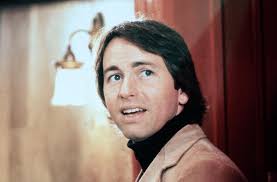
Introduction
John Ritter, best known for his iconic role as Jack Tripper on the hit television series “Three’s Company,” remains a significant figure in the entertainment industry. His unique blend of physical comedy and heartfelt sincerity not only entertained millions but also reshaped the landscape of American television. With the anniversary of his passing approaching, fans and critics alike are revisiting his extensive body of work and discussing his lasting impact on comedy.
Life and Career
Born on September 17, 1948, in Burbank, California, John Ritter was the son of famed country music star Tex Ritter. He graduated from the University of California, Los Angeles, where he honed his craft in theater. Ritter’s career took off with a role in the television series “M*A*S*H*” in the early 1970s, but it was his portrayal of the hapless yet lovable Jack Tripper that catapulted him to fame in 1977. “Three’s Company” quickly became a cultural phenomenon, running for eight seasons and amassing a dedicated fanbase.
Ritter’s ability to deliver physical comedy was unmatched; he skillfully navigated slapstick moments while incorporating emotional depth into his performances. Beyond his work on “Three’s Company,” he showcased his range in various television shows and films, including the acclaimed series “8 Simple Rules for Dating My Teenage Daughter,” which aired from 2002 until his untimely death in 2003. The show’s poignant exploration of family dynamics further confirmed Ritter’s talent as both a comedian and a serious actor.
His Lasting Impact
John Ritter’s legacy continues to resonate in the industry. His influence can be seen in many modern comedians and television shows that emphasize character-driven storylines laced with humor. His ability to portray vulnerability and strength simultaneously set a precedent for future comedians, inspiring a new generation of actors. In addition to his television roles, Ritter also appeared in successful films, including “Problem Child” and its sequel, helping to broaden his appeal beyond television.
Conclusion
As we remember John Ritter, it’s essential to acknowledge not just the laughter he brought but also the warmth and relatability he infused into his roles. His comedic genius and dedication to the craft have left an indelible mark on the television landscape. As fans continue celebrating his contributions, Ritter’s spirit lives on through the countless lives he touched with his humor and heart, reminding us of the power of laughter during even the toughest of times.



